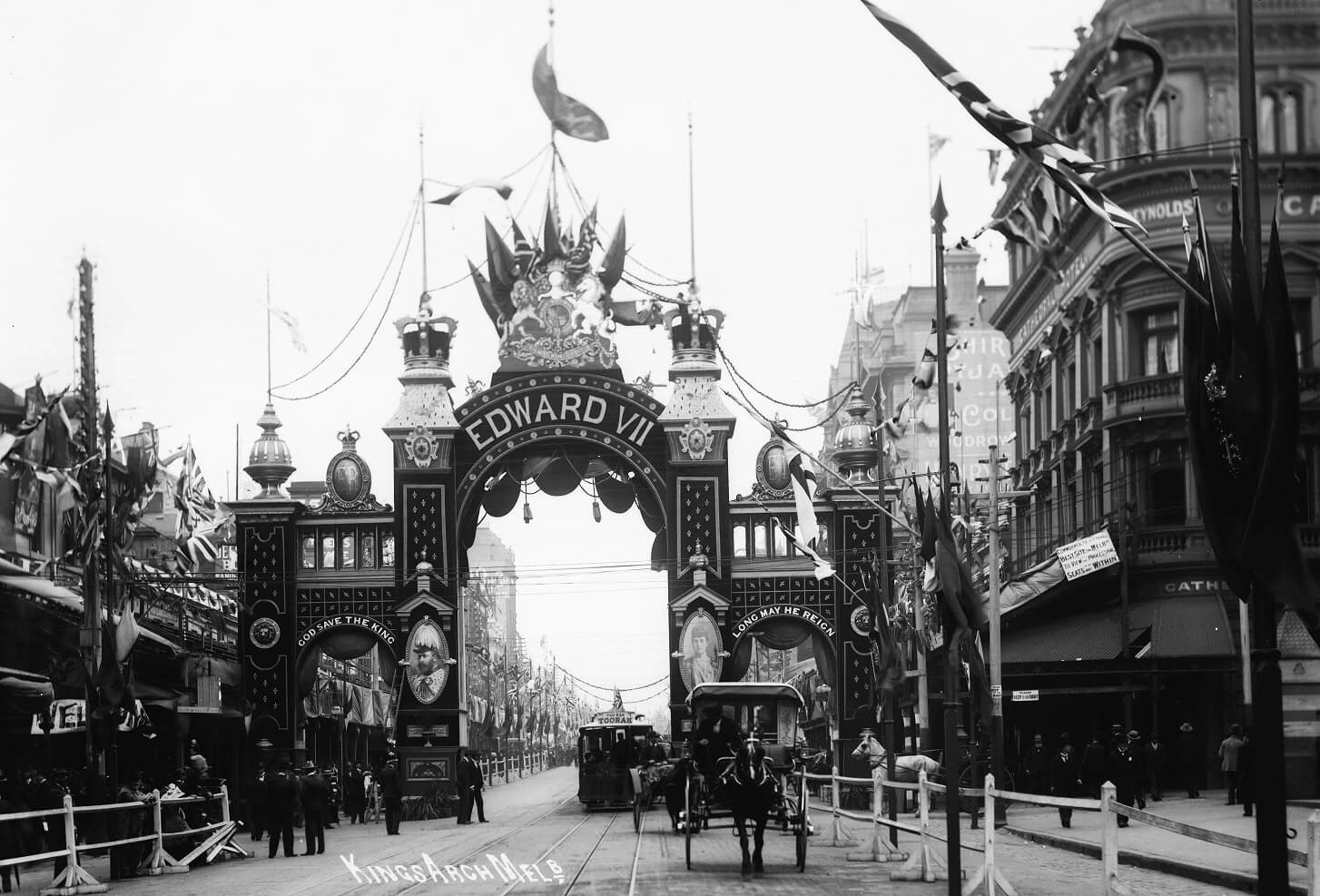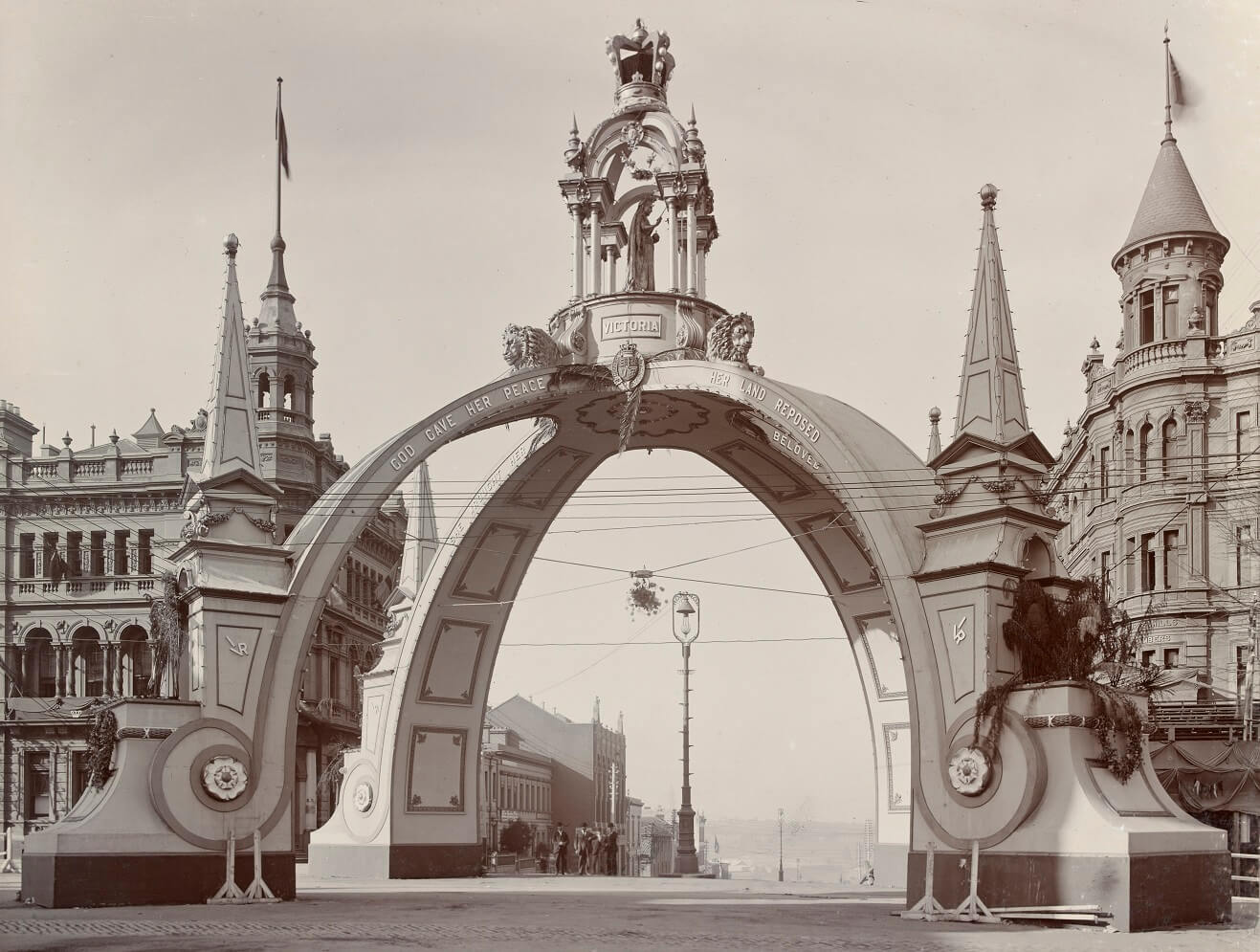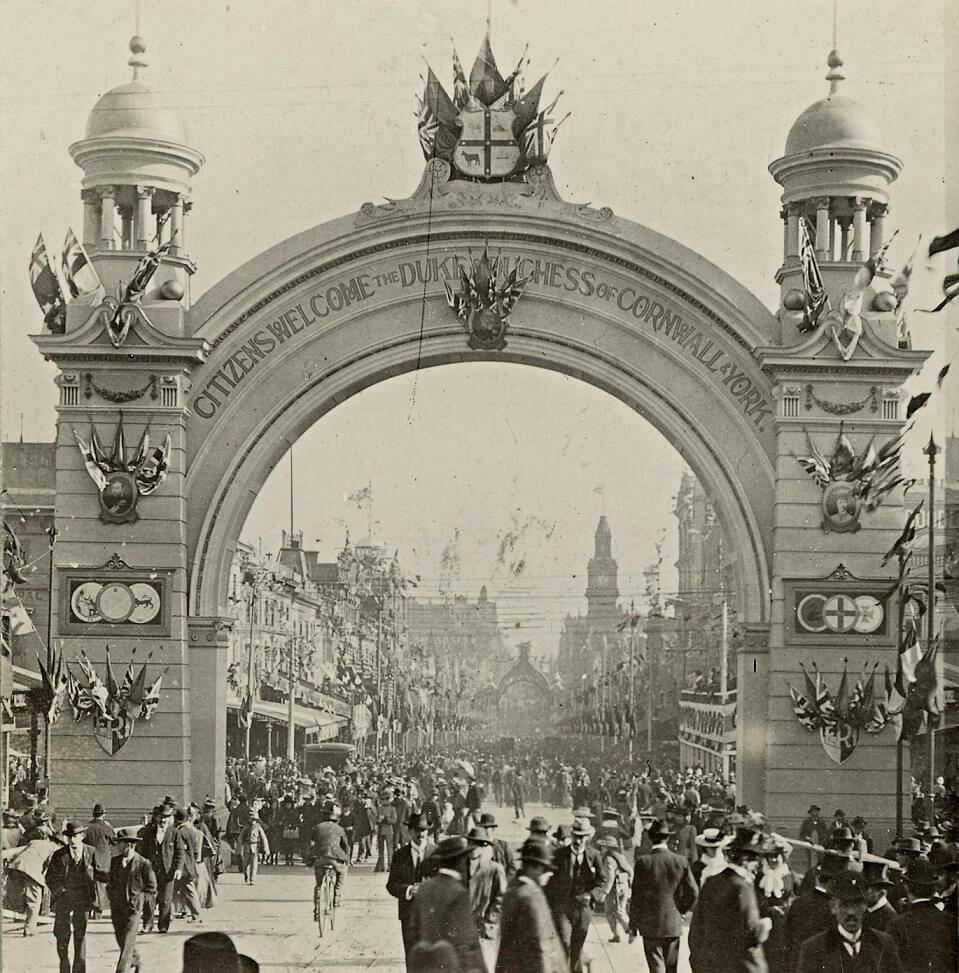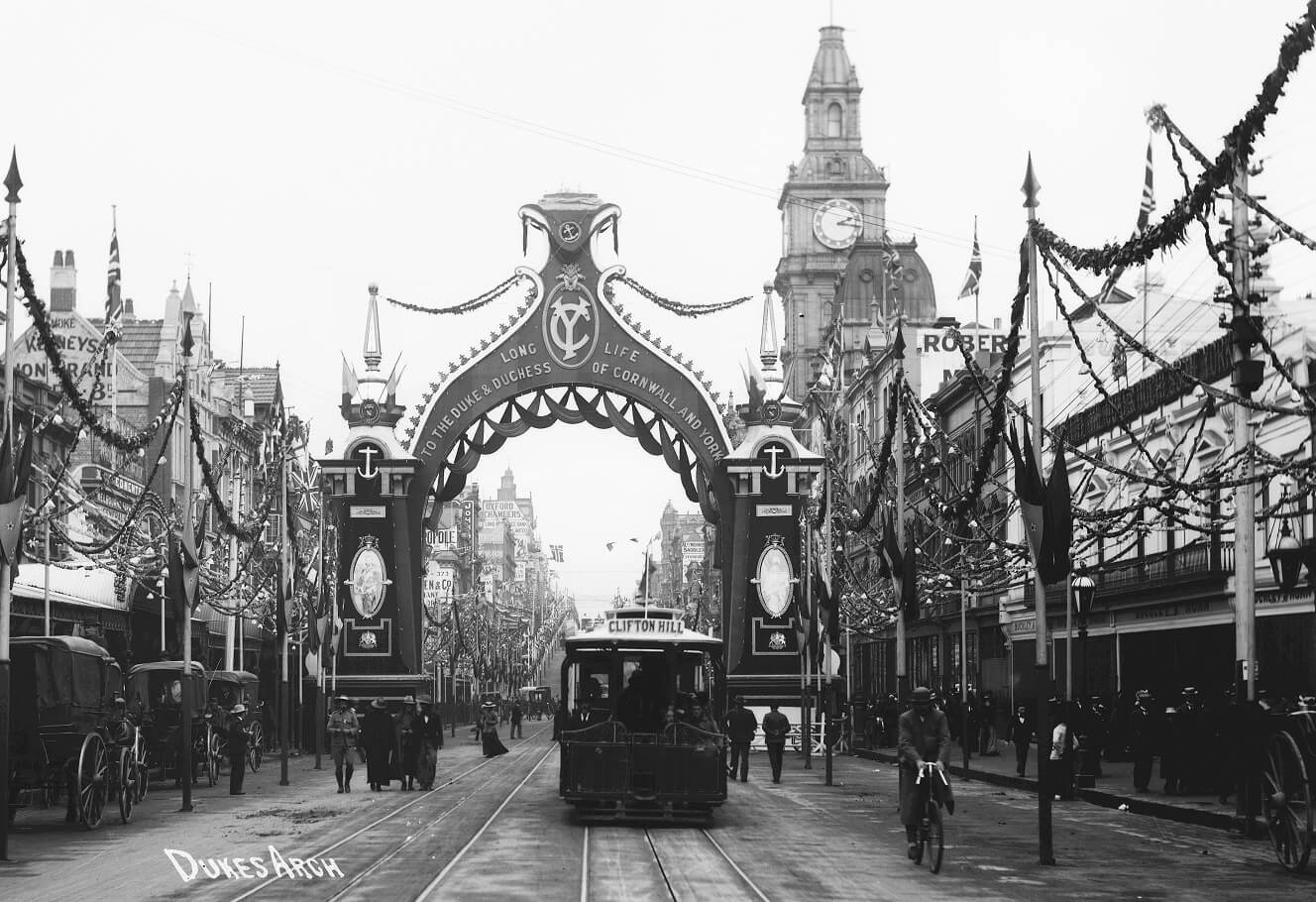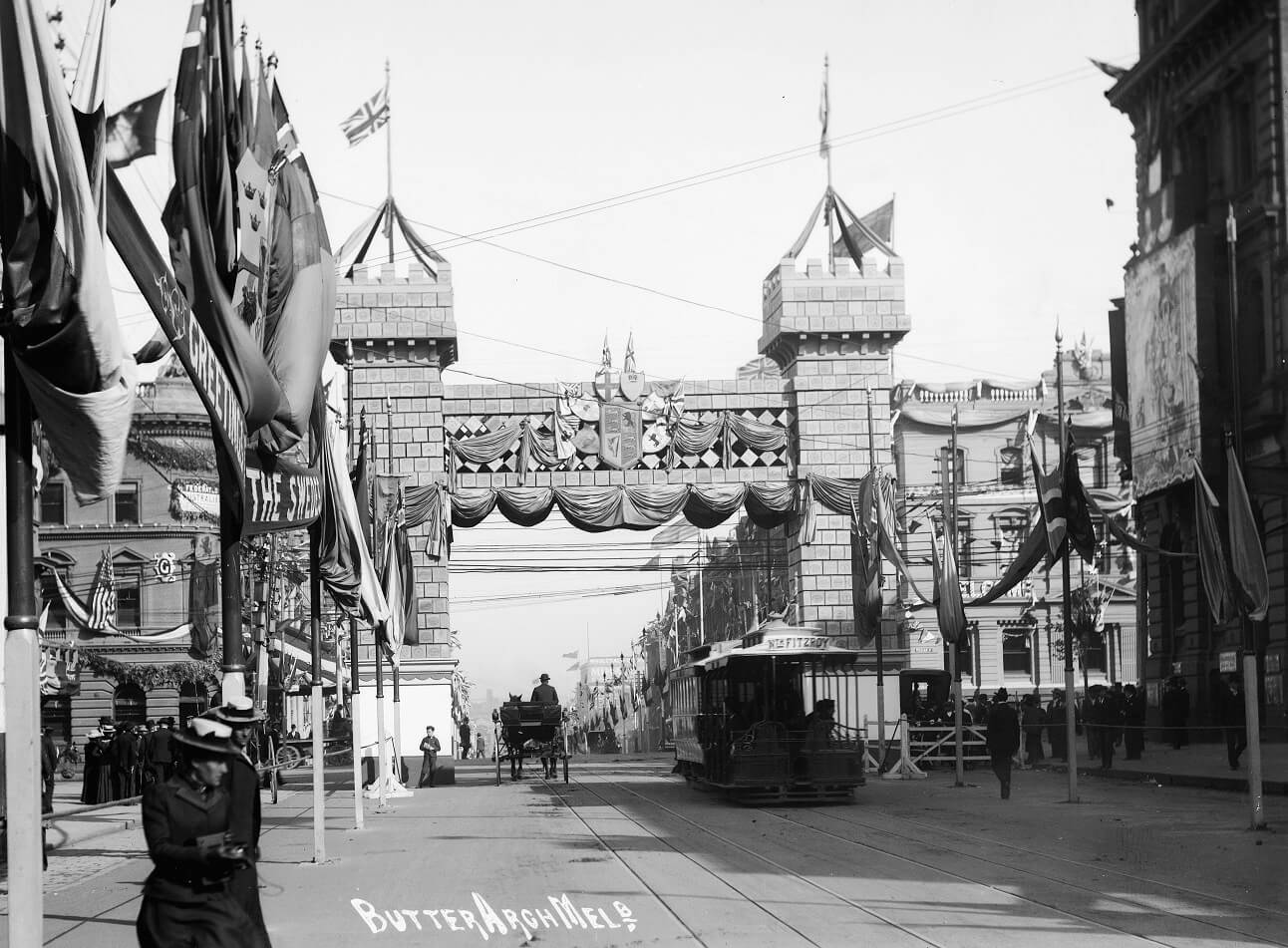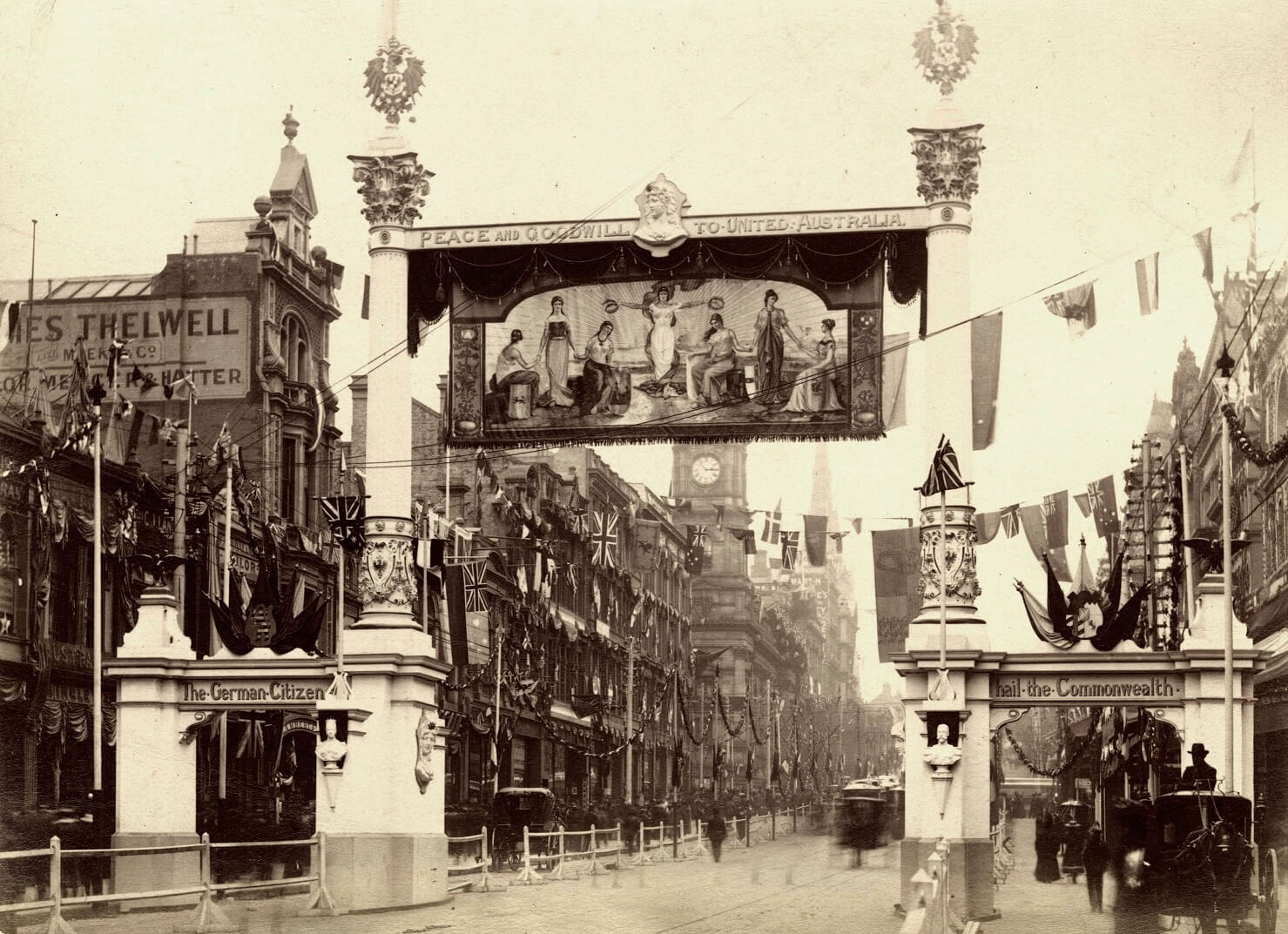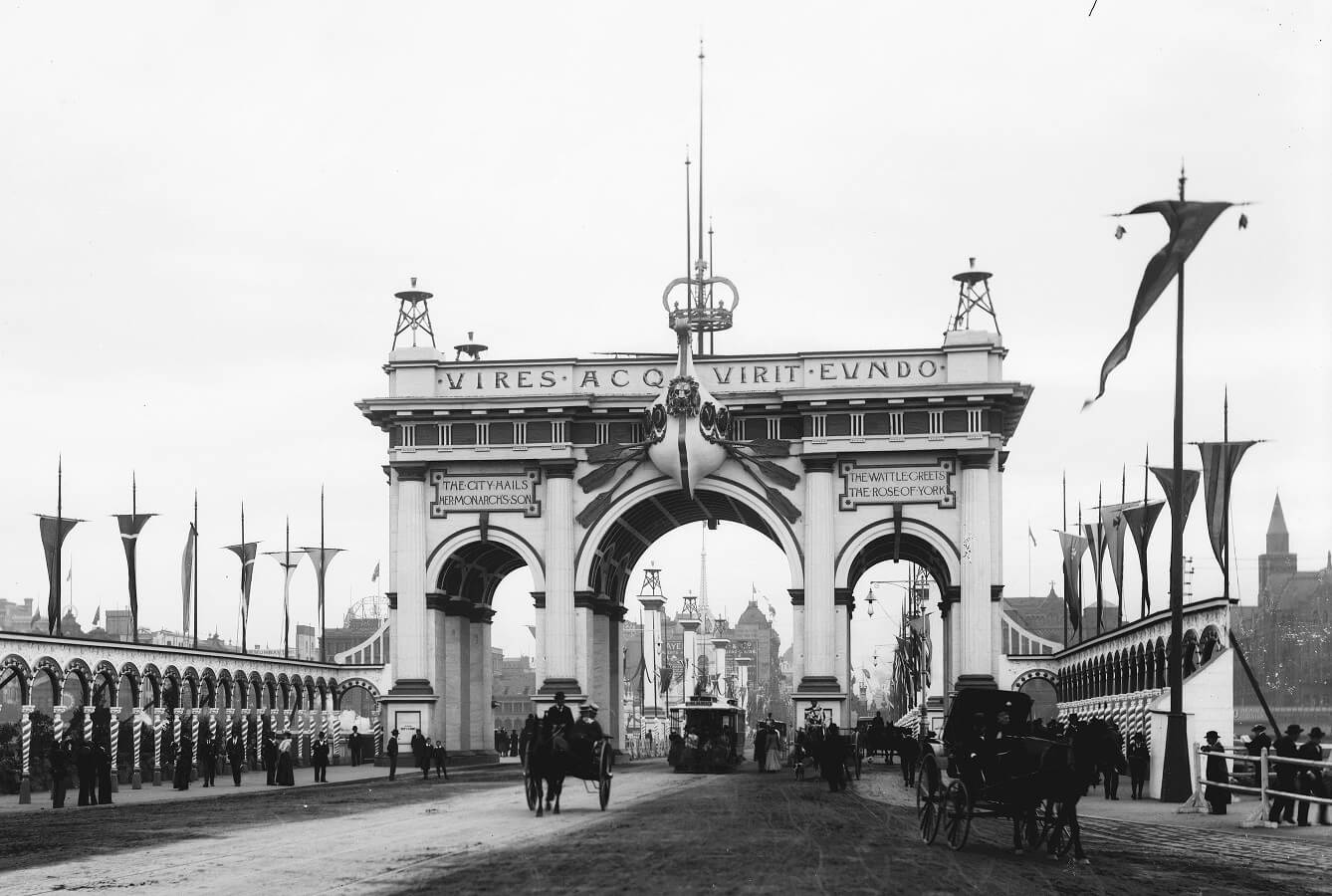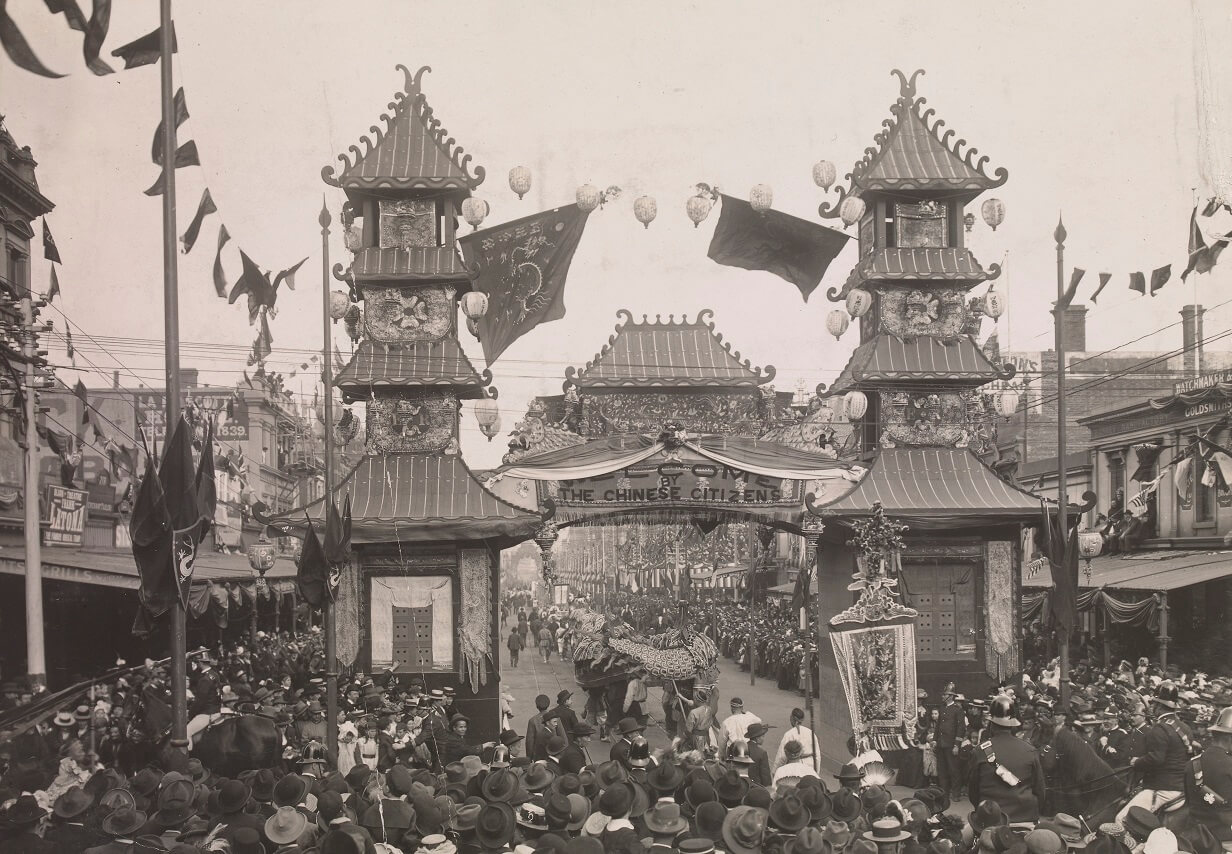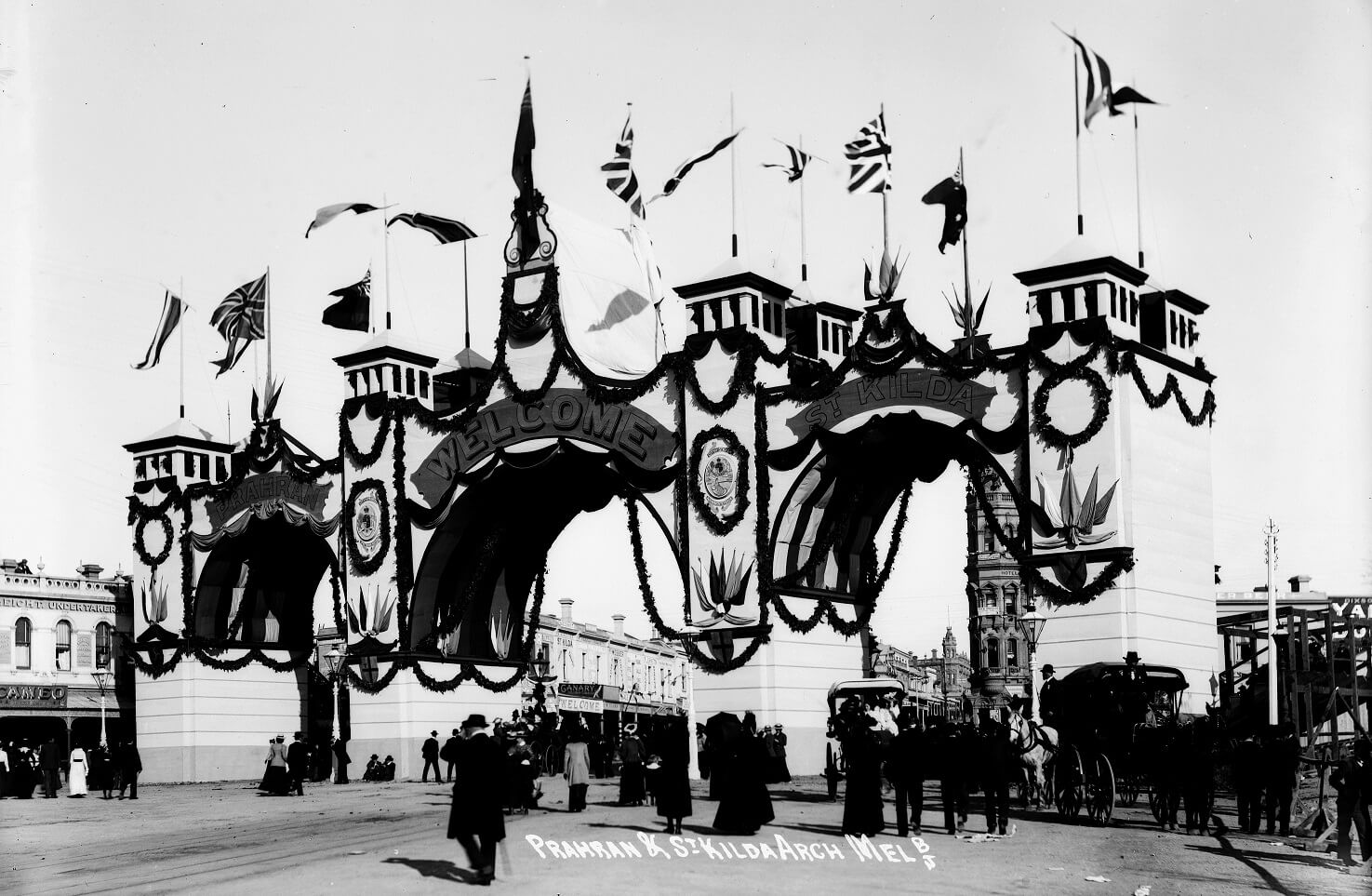In the closing decades of the nineteenth century the six independent colonies in Australia began to consider joining together to create a federated nation. The decision to federate was made finally by a referendum in each colony in 1899, with Western Australia joining in 1900. The Commonwealth of Australia came into being on 1 January 1901 with celebrations in Sydney.
Colonial rivalries had marred the long period of negotiation that preceded the decision. None was more hotly contested than the site of the eventual national capital. Both New South Wales and Victoria vied for the honour. In the end to ensure New South Wales' agreement to federate, it was determined that the capital city would be in New South Wales, but at an equal distance between Sydney and Melbourne. In the meantime Melbourne would host the federal parliament and government while the new capital city was built.
Opening of the first Australian Parliament
The opening of the Parliament of the Commonwealth of Australia took place in the Royal Exhibition Building in Melbourne on 9 May 1901. Prince George, Duke of Cornwall and York (later King George V), officiated in the name of the King. The city was decorated with a series of grand arches to celebrate the momentous occasion and the visit of the royal duke and duchess. The use of arches to celebrate important civic occasions has a long history, extending from ancient times, but it was revived in the late nineteenth century as part of the 'City Beautiful' movement in America.
Melbourne excelled itself, with a series of eight grand ceremonial arches marking the route to be travelled by the royal carriage on the journey to and from the Exhibition Building. There was a grand Municipal (or Corporation) Arch, a King's Arch, Queen Victoria's Arch, the Duke of York's Arch and a Citizens' Arch. There was also a Butter Arch and two arches contributed by non-Anglo communities - a German Arch and a Chinese Arch. Two additional arches were built in St Kilda and four in Ballarat. Small towns also joined in. Spencer Street Station was decorated to resemble Windsor Castle!
Where were the arches?
The carriage of the Duke and Duchess of Cornwall and York travelled the streets of Melbourne in procession. The Sydney Morning Herald provided the following account of the route: '…passed under the King's arch, in Swanston-street, turned into Collins-street, and passing under the Queen Victoria arch thence went along Spring-street to Parliament house and down Bourke-street, passing under the Citizen's arch, and the Duke of York's arch to William-street. Then turning into Collins-street it passed under the Butter arch and German arch, and on reaching Swanston-street, passed over the Prince's Bridge to Government House….'.
The following photographs document this series of extraordinary civic decorations. The arches remained in place for only a brief period.
All images above courtesy State Library Victoria.

